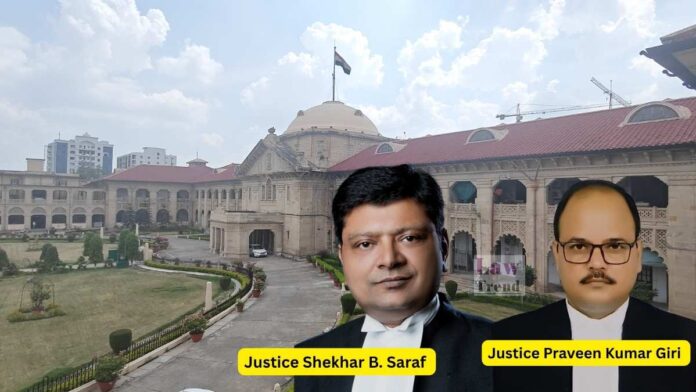The Allahabad High Court, in a significant ruling, has upheld the refusal of a Sub Registrar to register an agreement to sell a property located within a cantonment area without a No-Objection Certificate (NOC) from the concerned defence authorities. A Division Bench of Justice Shekhar B. Saraf and Justice Praveen Kumar Giri dismissed a writ
To Read More Please Subscribe to VIP Membership for Unlimited Access to All the Articles, Download Available Copies of Judgments/Order, Acess to Central/State Bare Acts, Advertisement Free Content, Access to More than 4000 Legal Drafts( Readymade Editable Formats of Suits, Petitions, Writs, Legal Notices, Divorce Petitions, 138 Notices, Bail Applications etc.) in Hindi and English.




